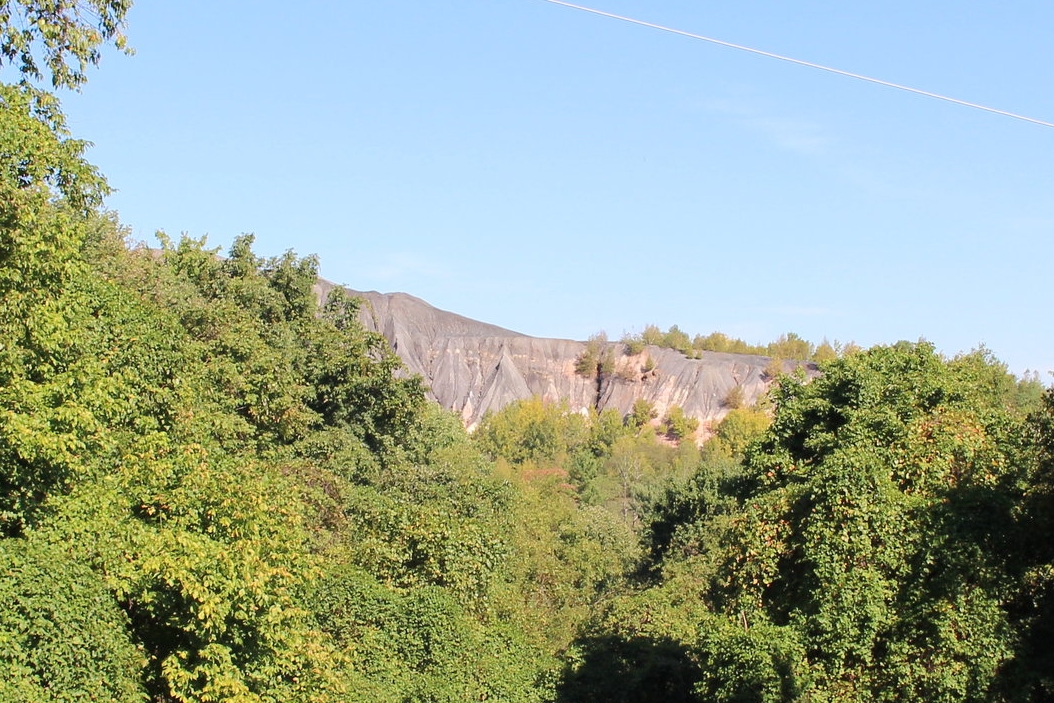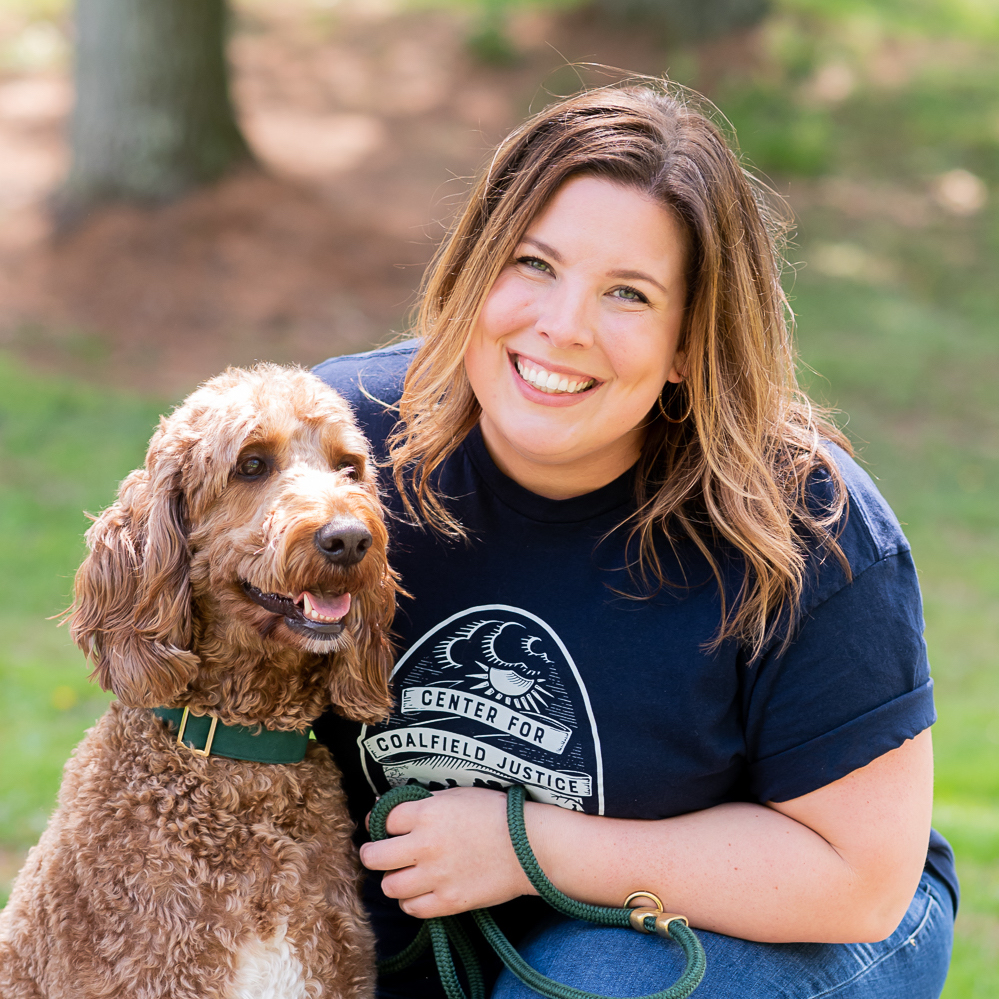
Nemacolin Slag Dump in Greene County, PA
Dear Representative Snyder,
As you said in your op-ed, coal has fueled our economy, has won wars for us, and has continued to play a leading role in our energy production. You’re right on all counts. However, coal has also resulted in thousands of cases of black lung, has destroyed water supplies, and has seen a rapid decline in investment in the past decade. As a lifelong resident of Washington County (ironically, of Coal Center), I grew up in a mined-out legacy area, where there are dump piles directly next to baseball fields and where people still live in the old row-houses that were part of company towns. As the granddaughter of a coal miner, I know just how important coal has been to our area and to my own family. I am also painfully aware of the fact that we desperately need to change the way we produce energy else we leave behind a terrible planet for the next generation.
Representative Snyder, you say that coal is a resource “deserving more respect, investment, and consideration by many whose homes and businesses are heated, cooled, and lighted by the very resource they disparage.” What investment are you referencing here? There exist – today – technologies that could produce zero-carbon emissions from power plants that burn coal. Why are we not investing in these? Do you expect the utility companies to implement and pay for these changes on their own – without pushing the cost to ratepayers? Will the legislature pass a law mandating the use of these technologies? If so, is the state willing to pick up the tab for investing in these technologies? And what about respect for residents and their choice? We heat our homes with electricity from coal and natural gas because those are the only options available to us in our energy market. All residents can do to make our carbon footprints smaller is control our consumption of electricity. We as energy users are being as responsible as we can. I wish I could say the same for the legislature that represents us.
Demand for coal nationwide is declining. We are seeing states enact legislation that requires an increasingly larger percentage of the energy produced to come from renewable sources. More importantly, people in the country want to see us transition: recent polling indicates that less than 30% of the U.S. population supported ramping up coal production. Comparatively, 75% want us to invest more in solar energy, and 71% want to see us further develop our capacity for wind power. Yes, people in southwestern Pennsylvania also want to see a cleaner energy future. As renewable energy options expand to more and more communities across the country, people are going to choose to use the renewable energy, further decreasing the demand for coal. If the demand is going away, why do you insist, “Coal is not going away – quietly or otherwise?” If you hide your eyes and block your ears to the scary realities of our energy future, our economy will suffer.
No one should discredit what truly clean energy technology has and can do for our world and the security of future generations.
Right now, the wind and solar industries are creating jobs 12 times faster than the rest of the U.S. economy. They are growing at about a 20% rate each year. That breaks down to anywhere from 1.3 to 1.9 million jobs over the next forty years – more than 32,000 jobs a year. These numbers are based on the current investment and development we are seeing nation-wide in these industries; however, the U.S. is actually not the leader in clean energy jobs in the world. China and Brazil have created more jobs in these areas than we have, and we are closely followed by India, Germany, Japan, France, Bangladesh, and Colombia. If we want to be exceptional – as you claim we are – we need to become a true leader by not only talking about clean energy but by acting now to make it a reality in our communities across the country. What if we in Pennsylvania became the national leader in bringing these jobs to the coalfields, where workers will be displaced? What if all the legacy coal sites, currently polluting our communities, were reclaimed and replaced with solar or wind farms instead?
Transitioning to a clean energy economy does not mean leaving coal miners behind: it means respecting them, their families, and their futures enough to invest in them. It is, in fact, insulting to imply that miners can only be miners for the rest of their lives. Miners are already among the most dedicated in our workforce: they work every day in dangerous conditions, and they work irregular shifts and overtime to meet the production demands of their companies. They do it to provide for their families, and their work contributes greatly to their communities. Miners are already accustomed to working with extremely complex technology: they have the minds and skill sets to learn to code or to learn how to operate the equipment needed to install and maintain renewable energy systems. All they need is the opportunity. Representative Snyder, what are you doing to attract these opportunities to your district?
You’re right again, Representative Snyder: “It’s a big job, but we’re Pennsylvanians. We’re used to big jobs. We’re used to carrying a nation on our shoulders. We have the resources. We have the people.”
Now, all we need is a state legislature that looks at the bigger picture and is willing to bravely lead the way in creating communities with a thriving economy and healthy environment.

